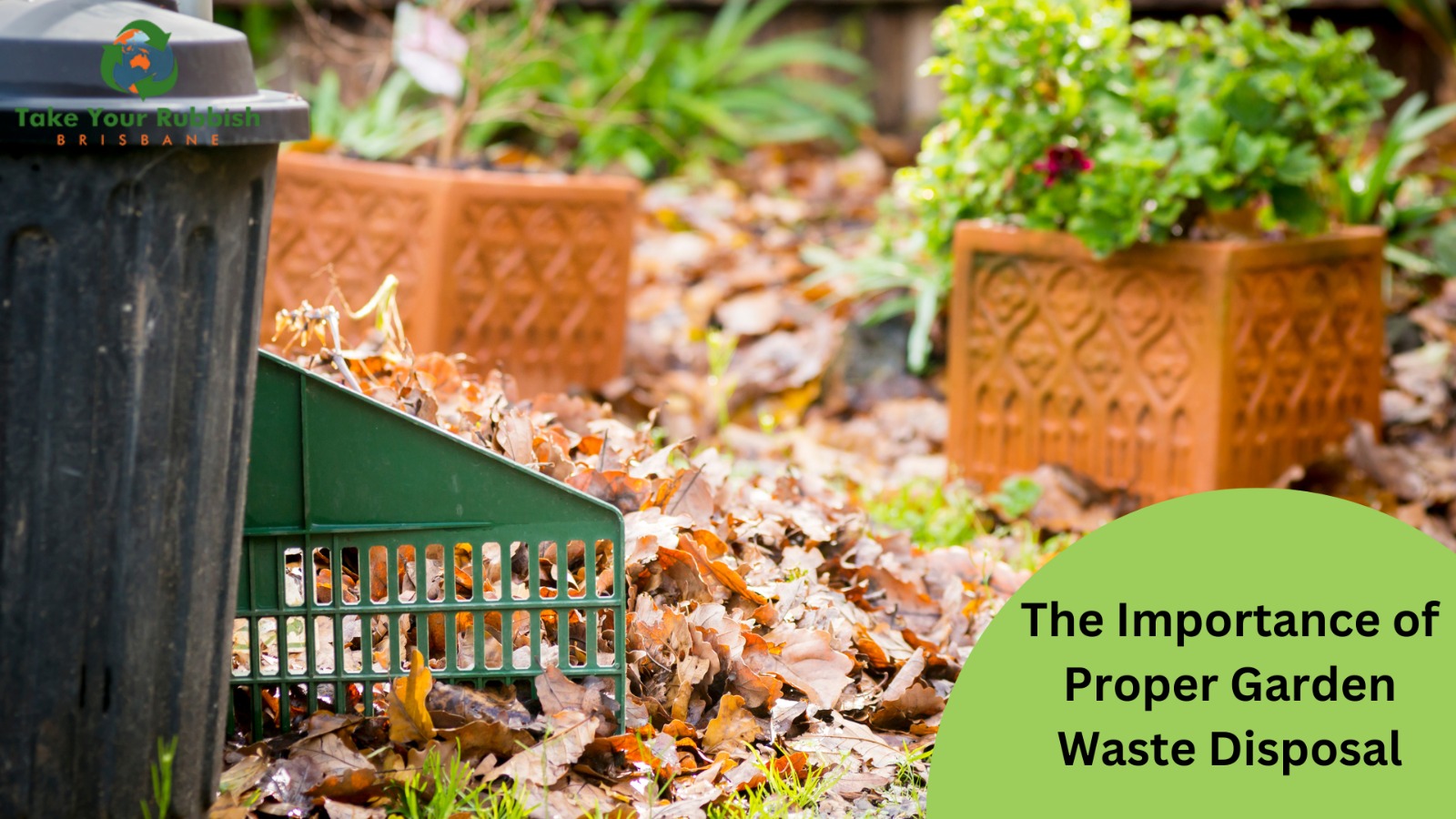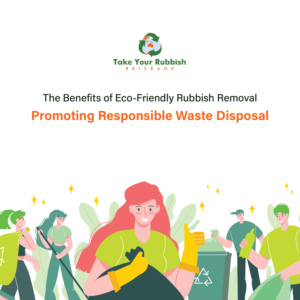Garden waste disposal is a critical aspect of environmental sustainability and public health. Improper disposal of garden waste can have detrimental effects on the environment, leading to soil and water pollution. In addition, it can pose health and safety hazards, such as attracting pests and causing injuries from sharp garden debris. This blog post will explore the environmental impact of improper garden waste disposal, health and safety concerns related to garden waste, the benefits of composting garden waste, municipal regulations and guidelines for garden waste disposal, innovative solutions for managing garden waste, community initiatives for sustainable garden waste disposal, the role of garden waste in soil health and fertility, educating and engaging the public on responsible garden waste disposal, economic and social implications of effective garden waste management, and tips for responsible and eco-friendly garden waste disposal.
Environmental Impact of Improper Garden Waste Disposal
Improper garden waste disposal can have significant negative effects on the environment. When garden waste is not disposed of properly, it can lead to soil and water pollution. For example, when garden waste is dumped in landfills, it decomposes and releases methane, a potent greenhouse gas that contributes to climate change. In addition, when garden waste is burned, it releases harmful pollutants into the air, further contributing to environmental degradation. To minimize the environmental impact of garden waste, it is important to reduce, reuse, and recycle as much as possible. This can be achieved through composting, mulching, and recycling garden waste to create nutrient-rich soil and reduce the amount of waste sent to landfills.
Health and Safety Concerns Related to Garden Waste
Improper garden waste disposal can pose potential health and safety hazards. For example, when garden waste is not properly managed, it can attract pests such as rodents and insects, creating a nuisance and potential health risks for the community. In addition, sharp garden debris such as branches and thorns can cause injuries if not handled and disposed of carefully. To protect public health and safety, it is essential to handle and dispose of garden waste properly. This can be achieved through proper storage, handling, and disposal practices, as well as the use of personal protective equipment when necessary. By taking these precautions, individuals can minimize the health and safety risks associated with garden waste disposal.
Benefits of Composting Garden Waste
Composting garden waste offers a range of benefits for both the environment and gardeners. By composting garden waste, individuals can reduce the amount of waste sent to landfills, thereby minimising the release of methane and other harmful pollutants into the atmosphere. In addition, composting creates nutrient-rich soil that can be used to improve garden fertility and support healthy plant growth. To successfully compost garden waste, it is important to follow certain guidelines and best practices. For example, it is essential to balance the carbon and nitrogen content of the compost pile, maintain proper moisture levels, and turn the compost regularly to promote decomposition. By following these tips, individuals can create high-quality compost from their garden waste and contribute to a more sustainable approach to waste management.
Municipal Regulations and Guidelines for Garden Waste Disposal
Local municipalities often have regulations and guidelines in place for the proper disposal of garden waste. These regulations may include restrictions on burning garden waste, guidelines for curbside collection of garden waste, and requirements for composting and recycling. It is important for individuals to familiarise themselves with these regulations and guidelines to ensure compliance and contribute to responsible garden waste management. By following municipal regulations and guidelines, individuals can help minimize the environmental impact of garden waste and support a more sustainable approach to waste disposal.
Innovative Solutions for Managing Garden Waste
Innovative technologies and practices are emerging to address the challenges of garden waste disposal. For example, bioenergy production from garden waste offers a sustainable alternative to traditional waste management practices, providing renewable energy sources while reducing the amount of waste sent to landfills. In addition, waste-to-resource initiatives are being developed to convert garden waste into valuable products such as compost, mulch, and biochar. These innovative solutions have the potential to contribute to a more sustainable approach to garden waste disposal, minimizing environmental impact and promoting resource efficiency.
Community Initiatives for Sustainable Garden Waste Disposal
Community-led initiatives play a crucial role in promoting sustainable garden waste disposal. For example, neighborhood composting programs and community gardens provide opportunities for individuals to come together and contribute to responsible waste management. These initiatives not only help reduce the amount of garden waste sent to landfills but also foster a sense of community and environmental stewardship. By participating in community-led initiatives, individuals can make a positive impact on garden waste management and contribute to a more sustainable and resilient community.
The Role of Garden Waste in Soil Health and Fertility
Garden waste can play a valuable role in supporting soil health and fertility when used as organic mulch or compost. By incorporating garden waste into soil management practices, individuals can improve soil structure, retain moisture, and enhance nutrient availability for plants. In addition, garden waste can help suppress weeds and reduce the need for synthetic fertilizers and pesticides, promoting a more sustainable approach to gardening. By recognising the benefits of garden waste for soil health and fertility, individuals can make informed decisions about how to manage their garden waste in a way that supports healthy and productive gardens.
Educating and Engaging the Public on Responsible Garden Waste Disposal
Public education and awareness campaigns are essential for promoting responsible garden waste disposal practices. By providing information on the environmental, health, and social implications of garden waste disposal, individuals can make informed decisions about how to manage their garden waste in a way that minimises negative impacts. In addition, engaging the public in discussions and activities related to garden waste management can foster a sense of environmental stewardship and community responsibility. By educating and engaging the public on responsible garden waste disposal, individuals can contribute to a more sustainable and equitable society.
Economic and Social Implications of Effective Garden Waste Management
Effective garden waste management can have significant economic and social benefits. For example, by composting garden waste, individuals can save money on synthetic fertilisers and reduce the cost of waste disposal. In addition, community-led initiatives for sustainable garden waste disposal can foster a sense of community and environmental stewardship, promoting social cohesion and resilience. By recognising the economic and social implications of effective garden waste management, individuals can make informed decisions about how to manage their garden waste in a way that supports both their own well-being and that of their community.
Tips for Responsible and Eco-Friendly Garden Waste Disposal
There are several practical tips that individuals can follow to dispose of garden waste in a responsible and eco-friendly manner. For example, composting garden waste can create nutrient-rich soil for gardening, while mulching can help retain moisture and suppress weeds. In addition, recycling garden waste through curbside collection or community composting programs can minimise the amount of waste sent to landfills. By following these tips, individuals can make a positive impact on garden waste management in their own communities and contribute to a more sustainable approach to waste disposal.
In conclusion, proper garden waste disposal is essential for environmental, health, and social well-being. By minimising the environmental impact of garden waste, individuals can contribute to a healthier planet and support sustainable gardening practices. It is important for individuals to familiarise themselves with municipal regulations and guidelines for garden waste disposal, as well as to explore innovative solutions and community-led initiatives for sustainable waste management. By educating and engaging the public on responsible garden waste disposal, individuals can make a positive impact on their own communities and contribute to a more sustainable and equitable society. It is essential for individuals to adopt responsible and sustainable practices for managing garden waste in their own homes and communities, promoting a healthier and more resilient environment for future generations.
Ready to responsibly dispose of your garden waste? Contact us today to ensure your garden rubbish is handled with care and in an eco-friendly manner. Let’s work together to promote a healthier environment and sustainable gardening practices. Get in touch now!
FAQs
What is garden waste disposal?
Garden waste disposal refers to the proper and responsible disposal of organic waste materials generated from gardening activities, such as grass clippings, leaves, branches, and other plant debris.
Why is proper garden waste disposal important?
Proper garden waste disposal is important for several reasons. It helps to reduce the amount of waste sent to landfills, prevents pollution of waterways, and promotes the recycling and reuse of organic materials for composting and mulching.
How can garden waste be disposed of properly?
Garden waste can be disposed of properly by composting organic materials to create nutrient-rich soil, mulching to improve soil quality and retain moisture, or by utilising local green waste collection services for recycling.
What are the environmental benefits of proper garden waste disposal?
Proper garden waste disposal helps to reduce greenhouse gas emissions from landfills, minimises the need for chemical fertilizers by providing natural nutrients to the soil, and prevents the pollution of waterways by reducing the amount of organic waste runoff.
What are the potential consequences of improper garden waste disposal?
Improper garden waste disposal can lead to environmental pollution, including the contamination of water sources, increased greenhouse gas emissions, and the depletion of natural resources. It can also contribute to the spread of pests and diseases in the garden.




